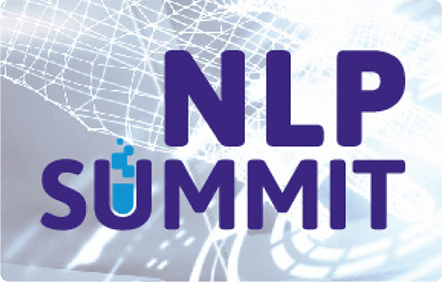Non-profits and public agencies can embrace big data technologies to improve the healthcare sector and response to disasters.
Benefit of Big Data Analysis
The use of the big data collected in the health sector will go a long way in assisting doctors to make quick choices based on the information at their disposal. Patients will also enjoy timely and appropriate treatments. They’ll also be better acquainted with health care providers.
The use of big data analysis is also beneficial in the health sector because it saves cost since unnecessary procedures are identified. Big data analysis can also help in boosting clinical effectiveness in terms of drugs and treatments.
How Can Big Data Be Useful In Times Of Disaster?
According to Tom Groenfeldt in a Forbes article, “The UN’s Global Pulse is using a network of innovation labs to see how data tracking human behaviour might improve responses to poverty, disease and humanitarian crises.”
For instance, the possibility of using cellphone data to track people’s migration after the occurrence of a natural disaster is being explored by the UN. If successful, this data will enable victims of natural disasters to be attended to faster.
A number of other agencies have also developed technologies that will aid their relief efforts. For instance, Geeks Without Bounds and Splunk4Good utilized social media analysis for disaster response during Superstorm Sandy. The project went through posts on Twitter and pictures posted on Instagram and keywords like power, water and food to identify locations that are in dire need of supplies.
A Glimpse into the Future
At John Snow Labs, we believe that a gap exists between providing quality data operations by technology companies and healthcare providers and publishing data for analysis. As a result, data scientists spend most of their time preparing data for analysis and this hinders insights which data scientists are not well grounded to address.
Due to the new nature of big data analytics in disaster response, lots of agencies need to change their culture to accept using data in their efforts. This is why John Snow Labs believes that “DataOps” will emerge with time as its own discipline.
Despite these challenges, a promising future exists for big data in emergency management. With the completion of researches by organizations, emergency managers will be better armed with the needed data and will see it as a valuable route that should be embarked on.
What Role Can Be Played By Big Data Philanthropy?
Data philanthropy can be viewed as a form of business risk mitigation. This was stressed by Fast Company’s Co. Exist:
“The next movement in charitable giving and corporate citizenship may be for corporations and governments to donate data, which could be used to help track diseases, avert economic crises, relieve traffic congestion, and aid development. The public sector isn’t, however, the only one to gain from Data Philanthropy: companies donating data can get advantage from it too.”
Data philanthropy is seen as being more than simply CSR by companies. We need to understand that sharing data sparks innovation. This is why one of our core beliefs at John Snow Labs is that data science will be a major driver of progress for 21st century medicine.
The Skoll World Forum and the Harvard Business Review recently hosted an online debate tagged “How Can Big Data Have Social Impact.” the president and CEO of Benetech, Jim Fruchterman explains that:
“Massive amounts of data are collected on the pollution in our cities and the changes in our climate. The more we use technology in our education and health systems, the more data we collect about how people learn and what keeps us healthy or makes us sick. These information-centric areas are built for Big Data – data that if better understood could help provide a pathway to maximize our human potential, instead of maximizing profits.”
The role of the private sector in big data analysis and data philanthropy was pointed out by Robert Kirkpatrick, Global Pulse’s director. Here are his contributions:
“The public sector cannot fully exploit Big Data without leadership from the private sector. What we need is action that goes beyond corporate social responsibility. We need Big Data to be treated as a public good.”
We stand to gain a lot through exchange between the stakeholders that are working on solutions and testing new approaches.
The Role Played By Research
Researchers have shown the potential of data as source for new insights into human behavior. With these, they have been able to create tangible case studies to support Data Philanthropy.
For instance, how cell phone location data was used to understand the effect of human movement on malaria spread in Kenya was shown by academic researchers. Accessing unknown Yahoo! emails created a clear picture about international migration rates.
Stephen Wolfram also made use of the data supplied by Facebook to illustrate how the data signifies signals about people and their lives change with time.
Private Sector Data Sharing
Lots of pioneers have been testing the idea of private sector data sharing. For instance, France Telecom-Orange has gathered five million mobile phone numbers in Cote d’Ivoire to the researchers for the Data for Development Challenge.
Also, Bitly Social Data APIs was launched by Bitly to provide developers with data harvested from the numerous clicks they receive every month.
UNDP and World Bank amongst other international organizations are working towards setting up their internal data for applied research experiments and correlating them with social media or mobile phone data.
Role Played By John Snow Labs
At john Snow Labs, our goal is to accelerate 1,000 data science projects by the end of 2020. We are focused on helping at least a thousand real projects and to help teams advance faster. We partner with start-ups and non-profits to make them successful.
We are also determined to accelerate the use of data to improve human well-being (physical, emotional, psychological, social and economic well-being). We will accelerate humanity’s progress in healthy behaviors, mental and physical health as well as social connectedness through the provision of excellent data operations products and services.
We are also focused on bridging the gap that exists between providing quality data operations by technology companies and healthcare providers and publishing data for analysis.
In addition to big data, tools like Generative AI in Healthcare and a Healthcare Chatbot are revolutionizing disaster response. They provide real-time assistance, streamline communication, and help healthcare professionals make faster, more informed decisions during emergencies.



























